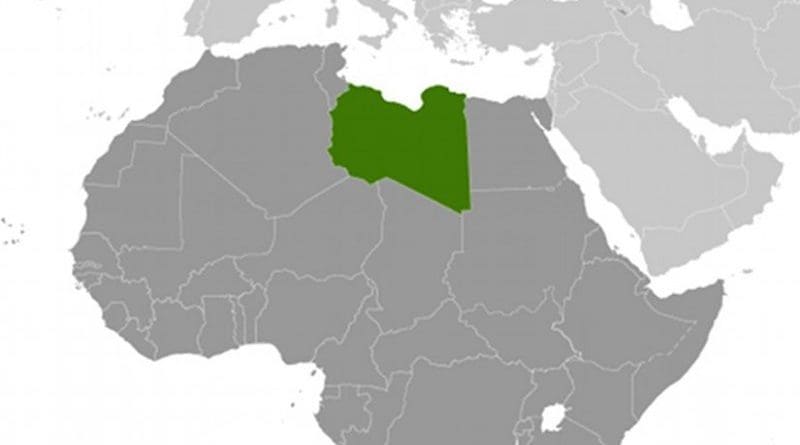The Libyan Quagmire – OpEd
By MEI
By Dr. George Harris
American policy toward conflict in Libya is bearing disappointing fruit. The conflict there seems to be settling in to a stalemate with the likely prospect of becoming an extended civil war. In the face of this prospect, John McCain and other Senators are calling for greater US involvement. That goes against the grain of American public opinion. It raises in sharp relief the question: Will our current limited engagement policy work? And if so, when? And would more training of protestors, limited airstrikes to deter expansion of the area under Libyan army control, and the like bring Qadhafi to his knees?
Unfortunately for those seeking relatively cheap change of regime in Libya, the reality suggests that against the current opposition, even beefed up some, Colonel Qadhafi will be able to hang on for the long pull. Even training of Libyan opponents of Qadhafi — whoever they may be and as disunified as they are — is not likely to change the balance, though it may prolong the division of Libya into two rough geographic zones in continuing and uneasy conflict.
The reason for this unfavorable prognosis lies in part in the failure of the US to enter the conflict at the very start with massive airstrikes, targeting command and control, in a major show of force rather than waiting until Benghazi was almost taken by Qadhafi’s troops. Had we displayed a “shock and awe” determination from the very start, before Libyan forces had begun to kill protestors on a large scale, forces that subsequently became engaged to defend Qadhafi’s regime might well have not wanted to risk becoming involved in what would then have appeared as a lost cause. That was what happened in the conflict against Saddam Hussein’s Iraq. Debriefing of Iraqi troops after the war made clear that Iraqis saw no use in fighting when they were sure they would lose. Analogously, the effect in Libya would likely have been that many of those who are now defenders of Qadhafi’s regime might well not have risked becoming potential war criminals by shooting unarmed protestors.
That possibility is now over. Unfortunately, once these forces began killing, they have a powerful incentive to stand with the regime to the bitter end. The import of the declarations by Washington and European Presidents is to assure Qadhafi loyalists that they now face the Hague Tribunal for their actions. As a result, half-measures now will not work to get them to throw down their weapons and surrender. Their fate and that of the Qadhafi regime are more tightly linked than they were at the beginning of this uprising.
Policymakers need to keep this discouraging reality in view as they consider next steps. Qadhafi obviously believes that we are too deeply enmeshed in Iraq and Afghanistan to commit the force needed to topple his regime. He may well not believe his own rhetoric that all true Libyans love him. But he clearly estimates that persistence has paid off in the past and will again. Perhaps he thinks that the thirst for oil will bring the Allies to back down once they see that his regime refuses to crumble. He has lived as an international pariah before and he is prepared to chance that again. From his point of view, when he continued to hold out, the international community eventually came to his terms and would again.
A failure of NATO against a petty dictator like Colonel Qadhafi will have its own repercussions on the larger scene. The stakes are high as NATO’s value in a post-Cold War world depends on achieving success. Hence, the question is dramatically posed: are the European/American forces willing to commit the resources necessary to prevail against this stubborn foe? Trying to do it on the cheap is unlikely to succeed.
George S. Harris is a Scholar at the Middle East Institute in Washington, DC and a Department of State chief intelligence officer for the Middle East and South Asia during the Reagan to Clinton administrations. Assertions and opinions in this Policy Insight are solely those of the above-mentioned author(s) and do not necessarily reflect the views of the Middle East Institute, which expressly does not take positions on Middle East policy.

